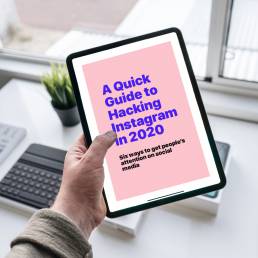Welcome to 2020. It’s a brand new year and a brand new decade. With it comes a set of new challenges and opportunities.
If you’re looking for inspiration to start the new year fresh then you might like this post on my reading habits in the last decade.
I’ve been thinking a lot about how we talk about mental health as a society. Whilst there have been great moves in creating an environment of openness where people can talk about what they’re facing rather than burying their feelings, it also feels like no one is talking about some of the basics of recovery.
I would call it personal responsibility.
If those words are triggering to you, then I suggest not reading further.
Developing a healthy mind is a process, just as becoming physically fit is a process too. The reality is that it is much easier to label something as ‘mental health’ or ‘anxiety’ as it somewhat acquits us from the process of change.
Issues in the mind are real but the journey of transformation is necessary if you want to live with a healthy mind and change your experience of life. Change is painful and yet it is very worthwhile.
When I grew up, I wouldn’t have necessarily described it as this before as the language was not commonplace but in today’s terms, I definitely struggled with a lot of social anxiety in my childhood.
New situations and meeting new people was deeply uncomfortable for me and I definitely lived out most of my younger years with extreme shyness off the back of a difficult family situation.
Fast forward to now and I feel like I have something to say because I realise that what has helped me grow in confidence has been not about the grace and warmth of society but instead my own sense of personal responsibility and being encouraged by others around me to lean into an environment of personal growth.
Today society wants to pamper and cushion those in difficulty (a noble yet misplaced intention) but more often than not, it requires challenge and discomfort to move us forward.
If anxiety has been a large (or even small) part of this last year for you then my heart and this post is for you. Here are ten things that I think could help us all become less anxious and worried about life in 2020.
1. Reduce your information overload (and unfollow Greta Thunburg)
We’ve never lived in such an age with access to such overwhelming amounts of information. Part of what makes us anxious is the sense of powerlessness that comes from being hyper aware of the issues of our time. Greta for me (not as a person as I don’t know her) as a symbol in society represents the fear that this generation is experiencing.
I feel deeply uncomfortable with public speeches that urge and call us to panic and to become afraid. Not because these issues don’t need discussing or attention, but because this is exactly what is sending our young people into despair instead of instilling hope for a great future.
The truth is that most of us aren’t engineers or scientists. What good does it do to stir up fear? Awareness yes but with it comes a tremendous cost for the minds of the young.
I talk more about the issues of using fear as a medium of communication in this post.
But this sense of overwhelming information is not just about fear. You would be wise to unfollow the celebrities and popular figures who paint a materialistic and hedonistic life that describes success, happiness and love as something you will (most likely) never be able to reach.
Reduce your input (social media, friendships or otherwise) and you will reduce your output (anxiety).
Thinking positively ain’t going to help you if you insist on reading such dread-filled content. Change up the quantity and quality of information coming your way.
2. Live one day at a time
Jesus wisely encourages us not to worry about tomorrow. It’s not because he’s not into being organised or forward planning (which becomes apparent when you take into consideration the eternal plan Jesus set out to rescue humanity which involved 30 years of doing pretty much nothing noteworthy before his three years of ministry began, culminating at the cross).
It’s because when you worry about tomorrow, you lose the opportunity to do today well.
Praying (mostly) daily is something that helps me no end. It’s a rhythm that leads to peace, greater self-awareness and a sense of God’s goodness at work in my life. I always find that the sign that you’re praying correctly is that you get a truer sense of what is really important.
Certain tasks that I’ve been avoiding come to mind when I pray and God seems to help me see the bigger picture. Often we don’t see results when we pray because we’re so quick to move on to the rest of the day. But there’s power in the wait.
Do today well and let God worry about the rest.
3. Let go of control because it’s an illusion
Control is something that none of us really have. We couldn’t choose our upbringing, our genetics, our family and so much more. And even today, whilst we have the ability to choose many aspects of our lives such as education, job path etc there are also many things we are completely unable to control.
We can’t control what people do and we can’t micromanage circumstance.
Life happens and so it’s important that we understand that when it does.
The more we try to control variables and outcomes, the more neurotic we become and the more anxiety we experience. Take ownership of your life and maximise the power of your decisions but understand that you are not in control and nor will you ever be. It’s a godless life that tries to hang on to control but of course it’s in vain because none of us are anyways.
Various apocalyptic scenarios could play out before you finish this blog post:
- An asteroid could hit earth at any moment.
- A pigeon could fall from the sky and knock you unconscious (this actually happened to someone walking metres in front of my wife).
Equally all sorts of brilliant and wonderful things may happen. You could stumble upon a genius business idea today. You could be left a wealthy inheritance from a long lost family member. You could fall in love.
The possibilities are endless but one thing is for certain – so much of life is full of variables. Isn’t that what makes it so fun?
Trying to control the uncontrollable is an impossible task that will unleash panic into your life. Stop it.
4. Learn to laugh at yourself
Serious people take themselves too seriously and it’s a recipe for anxiety. I seem to have made it my lifelong goal to wind up those more serious than myself. It’s not like life is just a joke but life is supposed to be full of joy. King Solomon from back in the day tells us that a cheerful heart is good medicine.
We all know this to instinctively true.
Self-deprecating humour is a brilliantly British trait and we have learnt as a nation not to take ourselves too seriously. To get comfortable in your own skin and personality with all of its quirks is a recipe for happiness.
Joy overcomes the nasty poison called self-pity and sets you up for a healthy mind.
Laugh at the silly stuff you’ve done and don’t take everything so personally. Smile a little and chill the heck out. Seriously, why so serious? [/joker]. There’s always something to cheer yourself up about if you’re able to see the funny side of your own humanity.
Plus it’s a contagious spirit that lifts everybody in the room. Bring on the banter.
5. Build someone else’s dream
One of the great issues with today’s advice on mental health is that much of it points straight back to you. It was an unhealthy focus on you that messed you up in the first place. We live in a generation that has been told that that it is wonderful. And wonderful it is but it’s also wounded. I talk about how disadvantage isn’t as bad as everyone thinks here though.
We’ve been over-loved and over-celebrated. That every child would be given a medal for just taking part in a race does our soul a great disservice.
Self-entitlement and a university culture that rewards marginalisation and victimhood instead of old fashioned hard work, guts and skill is ruining the chances of the next generation and our minds are swiftly following course.
To hold the balance of brokenness and brilliance is a must to healthy living. Once you take the focus off yourself, you feel much better. Why does life have to be about you anyways? The Christian message has been painfully clear over the years – it’s a call to love and lift others instead of yourself.
What are the dreams and hopes of those around you? I can promise that if you spend your energy furthering others, you’ll be much healthier inside. Do something kind and don’t tell anyone. Be generous but don’t shout about it.
The more you signal your virtuosity, the more you keep bringing the focus back to self.
In doing so, you rob yourself of the life-giving power of selflessness. Make your life about other people more than yourself.
6. Be social even when you don’t feel like it
Being sociable is not just about personality, it’s about decision making. It’s in the presence of friendship and community that mental health lifts and attitudes shift. Just decide that this year, you’re going to be the most outgoing, friendly, connected human being on planet earth. Don’t stay at home nursing your ego with a binge Netflix experience but get yourself outside of the house and go say hello to some other human beings.
Stop cancelling last minute and stop avoiding commitment. Don’t tell us you’ll see if you can make it – get the date in your calendar and get yourself out there.
Side note: For all my single people (I refer of course to those who complain that there are no suitable partners, not to people just running in their lane and not necessarily looking), many are clearly bereft of partner because they’re actually not very sociable.
Friendship is the basis of a healthy marriage and it’s hard to have fire without smoke if you get my drift.
In other words, if you don’t have any new friendships happening then why would you ever be ready for a new relationship? You can’t cheat the natural processes that exist in the world today.
Less swiping and more outings please.
7. Do some exercise (you chubster)
The science is super clear here. Exercise releases endorphins and creates a self-fulfilling circle of health. The mind is connected to the body and a healthy body contributes to a healthy mind. I’m not against people being prescribed medication for mental health issues but wouldn’t it be worth going for a walk first? Or getting some advice about your nutrition?
When was the last time you got some input here? I’m just asking because I’m not sure anyone else is.
Pills don’t fix root issues, only the symptoms. It can be a strategic play to create space temporarily to address the root but you can’t avoid confronting the real stuff forever. We live in a sedentary and prosperous (regardless of how you feel about your socio-economic status) lifestyle that needs real activity to stay balanced.
If you don’t create activity then your mind will end up over-compensating for it. Hence, anxiety.
8. Stop describing your disorder
We’re quick to apply labels in today’s society and it doesn’t help us at all. How can anyone ever overcome something as permanent as a disorder? I didn’t have ‘social anxiety disorder’ growing up, but I did feel anxious at times. But isn’t that just a question of language? Change your language and change the game.
Your words are much more powerful than you realise. Whatever limits you create, you will live within. Each of us have invisible scripts that we always refer to.
- I’ve always been x
- It’s so difficult for me to y
- As a person with/of z
If you’re a Christian then there really is no excuse here. Your identity is in Christ. The old you is dead on the cross and there is a new you that is completely different to what your past says you are. Describe the new you. Choose to play the victim and you will be a victim.
Don’t use self-imposed limits to excuse your shoddy behaviour and your bad attitude. You are better than this.
9. Quit judging others
When you’re having a tough time, it’s easy to feel like everyone else has it so easy. But the truth is that everybody has something they’re battling with, they just don’t always showcase it. We’re comparing how we feel on the inside to what everyone is projecting on the outside and it can lead us into a place of comparison, bitterness and judgement.
I’ve often heard people say that it’s ok for you because of bla bla bla. Society seems to reward those who play the victim but once people succeed all hell breaks loose against them.
We’ve seen this recently with self-made billionaires and the political climate (although ironically of course everyone is complaining about it on social media platforms owned by billionaires – the hypocrisy is endless).
I talk more about why I appreciate billionaires here.
The real issue though is your heart. Other people succeeding doesn’t mean you can’t too but a sense of judgement and unfairness will rob you of your opportunity to move forward in life.
10. Repent from self-pity
I’ve saved this one for last because it’s so huge and yet I don’t know if I’ve ever heard many talk about this. Let’s cut to the chase. For the Christian, sustained anxiety is principally an issue of not trusting God.
For the unbeliever, there’s a lot of grace here because it’s hard to trust someone you don’t know. I’m not here to send judgement your way. My prayer would be that you would discover the one does sit above all and in whom all things are held together.
But for those who believe in Jesus Christ and have a sense of his message, the good news is that we have a way forward.
The reality is of course that we all worry and we all focus on ourselves too much from time to time. The key is not to stay stuck there but to lift our eyes. Repentance is not about condemnation but it’s about turning our back on self-pity and to be deliberate about moving forward in faith.
Repentance requires prayer, an awkward honesty and an investment of time but it will save your soul from the disease that is selfishness. It’s the underlying sickness that brings out symptoms such as anxiety and others.
Society wants to massage self-pity and our sense of injustice but Jesus wants it all to die on the cross.
Worldly thinking will keep us blaming others, whether that’s family upbringing or life circumstance but Jesus wants you to take responsibility and to truly own your recovery.
When you come to him with a real awareness of the true state of your brokenness, the grace of God will fill your every inadequacy. Saying sorry and turning from the past is important because it keeps short accounts and stops us getting bogged down in the stuff of yesterday. Freedom is on it’s way.
Repentance just might be the superpower our society needs.

Looking to level up your Instagram game?
If you’re new to social media or looking to take things up a gear then this free PDF is just for you. It’s called A Quick Guide to Hacking Instagram in 2020.
It’s a super practical 35-page guide on how to best use Instagram to get people’s attention for your brand, business or church.
You may also like these posts
27th July 2021
Why am I still single? (when I don’t want to be)
I shared a message recently around the idea of singleness being good. And marriage being good too. The idea was to really put the value back on singleness and to deal with the cultural romantic idol we have that meeting the right person will somehow complete us. That when we get married, life will begin and all be lived happily ever after.
2nd February 2021
PETA, human supremacy and the logical fallacy of speciesism
The internet is a wonderful place and full of wonderful ideas. It’s also a strange place and full of strange ideas. One such idea surfaced recently from the Instagram feed of animal right activist group, PETA which highlighted the concept Speciesism and attracted a certain amount of attention.
3rd August 2020
The insidious pull of extremism (why too much of anything is bad)
Excess often has a delayed reaction. Think of those moments where you very slightly over indulge - a delicious Sunday roast in Shoreditch, finishing the chocolate eclairs at the park that the kids half-touched or downing the last of the milk because you’re going away on holiday.
Cue 30 minutes later or so and you’re normally regretting the decision you made. Because life is all about balance.



